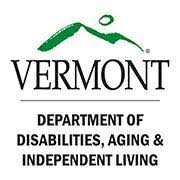Coronavirus Disease 2019 (COVID-19) Recommended Precautions for Caregivers
SUMMARY – Coronavirus Disease 2019 (COVID-19) continues to spread and has been confirmed in multiple states. This notice provides information to homecare providers and caregivers on the symptoms, prevention and precautionary measures one should take in caring for an individual who may be experiencing symptoms.
PREVENTION – There is currently no vaccine to prevent Coronavirus Disease 2019 (COVID-19). The Center for Disease Control and Prevention (CDC) recommends these everyday actions to help prevent getting sick:
- Avoid close contact with people who are sick.
- Avoid touching your eyes, nose, and mouth.
- Stay home when you are sick.
- Cover your cough or sneeze with a tissue, then throw the tissue in the trash.
- Clean frequently touched objects and surfaces every day using a regular household cleaning spray or wipe.
- Wash your hands often with soap and water for at least 20 seconds, especially after going to the bathroom; before eating; and after blowing your nose, coughing, or sneezing.
- If soap and water are not available, use an alcohol-based hand sanitizer with at least 60% alcohol.
- Follow the CDC’s recommendations for using a facemask.
o CDC does not recommend that people who are well wear a facemask to protect themselves from respiratory diseases, including COVID-19.
o Facemasks should be used by people who show symptoms of COVID-19 to help prevent the spread of the disease to others.
o Facemasks are crucial for health workers and people who are taking care of someone in close settings (at home or in a health care facility).
SYMPTOMS – Reported illnesses have ranged from mild symptoms to severe illness and death. The following symptoms may appear 2-14 days after exposure.
- Fever
- Cough
- Shortness of breath
IMPORTANT: Call your doctor if you or the person you are caring for develop symptoms, and has been in close contact with a person known to have COVID-19 or has recently traveled from an area with confirmed spread of COVID-19.
CAREGIVERS – What to do if a person you are caring for has been diagnosed with COVID-19:
CARING FOR A PERSON WITH COVID-19
- Make sure that you understand and can help the patient follow their healthcare provider’s instructions.
- If the patient is getting sicker, call his or her healthcare provider and tell them that the patient has laboratory-confirmed COVID-19.
- If the patient has a medical emergency and you need to call 911, tell the dispatch personnel that the patient has, or is being evaluated for COVID-19.
- The patient should not handle pets or other animals while sick.
- You and the patient should wear a facemask if you are in the same room.
- Wear a disposable facemask and gloves when you touch or have contact with the patient’s blood, stool, or body fluids, such as saliva, sputum, nasal mucus, vomit, urine.
o Throw out disposable facemasks and gloves after using them. Do not reuse.
o When removing personal protective equipment, first remove and dispose of gloves. Then, immediately clean your hands with soap and water or alcohol-based hand sanitizer. Next, remove and dispose of facemask, and immediately clean your hands again with soap and water or alcohol-based hand sanitizer.
o Place all used disposable gloves, facemasks, and other contaminated items in a lined container before disposing of them with other household waste. Clean your hands (with soap and water or an alcohol-based hand sanitizer) immediately after handling these items.
- Wash laundry thoroughly.
o Immediately remove and wash clothes or bedding that have blood, stool, or body fluids on them, using the warmest temperature recommended on the label. Wear disposable gloves while handling soiled items and keep soiled items away from your body. Clean your hands (with soap and water or an alcohol-based hand sanitizer) immediately after removing your gloves.
CLEANING AND PREVENTING THE SPREAD OF THE VIRUS
- Clean frequently touched objects and surfaces every day using a regular household cleaning spray or wipe.
- Wash your hands often with soap and water for at least 20 seconds, especially after going to the bathroom; before eating; and after blowing your nose, coughing, or sneezing.
- If soap and water are not available, use an alcohol-based hand sanitizer with at least 60% alcohol.
- Clean all “high-touch” surfaces, such as counters, tabletops, doorknobs, bathroom fixtures, toilets, phones, keyboards, tablets, and bedside tables, every day. Also, clean any surfaces that may have blood, stool, or body fluids on them. Use a household cleaning spray or wipe, according to the label instructions.
FURTHER STEPS FOR PREVENTION
- Caregivers and other household members should stay in another room or be separated from the patient as much as possible.
- Household members should use a separate bedroom and bathroom, if available.
- Prohibit visitors who do not have an essential need to be in the home.
- Make sure that shared spaces in the home have good air flow, like an air conditioner or an opened window, weather permitting.
- Avoid sharing household items with the patient. You should not share dishes, drinking glasses, cups, eating utensils, towels, bedding, or other items. After the patient uses these items, you should wash them thoroughly.
3.10.2020
FOR ADDITIONAL INFORMATION & UPDATES – Please visit the Vermont Health Department’s, the Centers for Disease Control and Prevention OR the Department of Disabilities, Aging and Independent Living’s website at:
- https://www.healthvermont.gov/response/infectious-disease/2019-novel-coronavirus
- https://www.cdc.gov/coronavirus/2019-ncov/index.html
- https://dail.vermont.gov/novel-coronavirus-information
